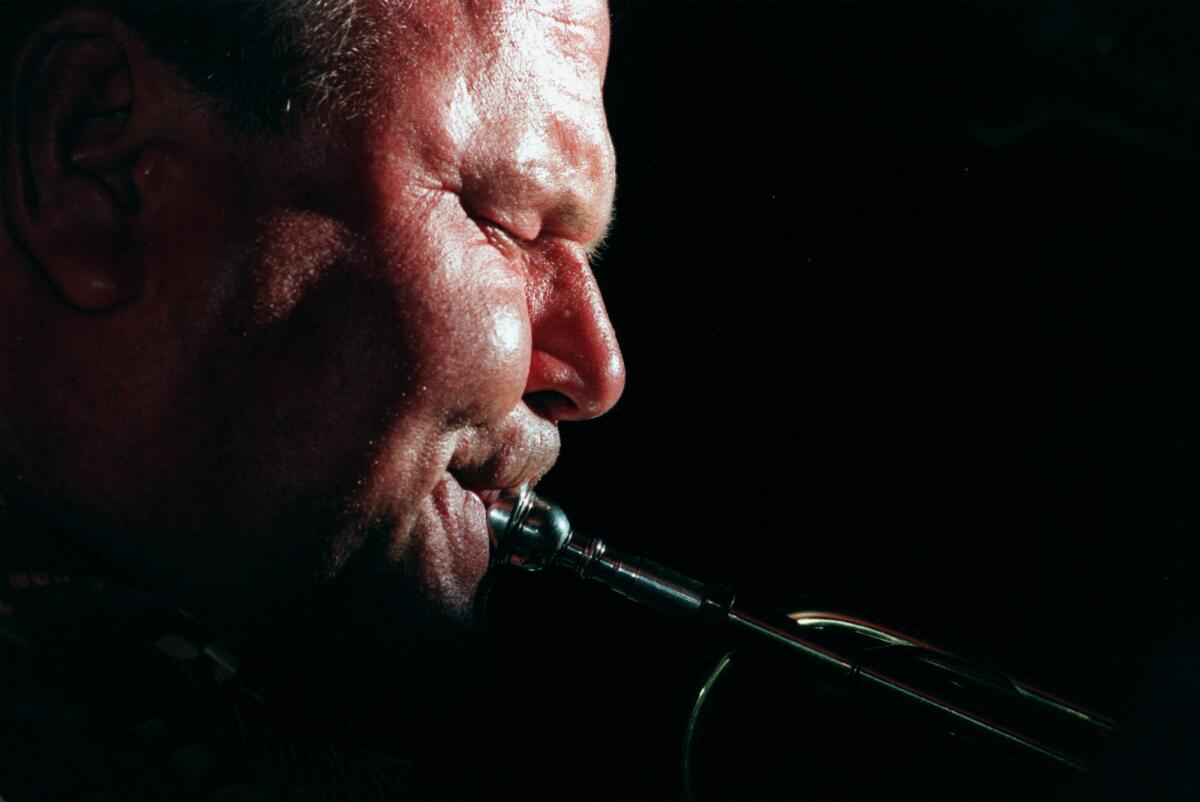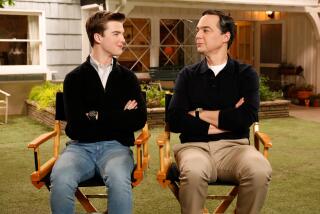Jack Sheldon, jazz trumpeter and ‘Schoolhouse Rock!’ singer, dies at 88

Jack Sheldon, a jazz trumpeter, singer and bandleader who had a parallel career as an actor in television sitcoms, and whose playing, singing and stand-up comedy were heard for nearly two decades on the Merv Griffin television show, has died. He was 88.
His death, on Dec. 27, was announced by Cynthia Jimenez, sister of Sheldon’s longtime manager, Dianne Jimenez.
While Sheldon’s career spanned music, television and film, he was the first to credit his jazz trumpet playing as fuel for his far-reaching successes in the entertainment world.
In the ‘50s, he was one of the vital participants in the West Coast jazz movement. Performing with the likes of Art Pepper, Curtis Counce, Gerry Mulligan and Chet Baker — whom he called “the James Dean of American jazz” — Sheldon insisted on spicing his playing with the dynamic energies of bebop amid the cooler, more laid-back orientation of the West Coast jazz style. And he often did so side by side in spontaneous jamming with Baker, his close friend and fellow trumpet player.
“Chettie had an old ’32 Ford and a big Cadillac, and he drove real fast,” Sheldon said in a 2002 interview with Times columnist Steve Lopez. “We’d just go riding all over the place, from Santa Barbara to San Diego, any nightclub we could find, and we’d play for no money. We’d just walk in and say, ‘Can we play?’”

And play he did. As often as possible, in public and in the practice room. Throughout his life, Sheldon maintained his playing skills via a regimen of hard work. At 79, he still insisted that “my chops are good, so long as I practice every day.”
The results of that determined work habit were apparent to Southland jazz audiences for decades. Sheldon performed on a regular basis in Los Angeles clubs, usually with the small ensemble he called his California Cool Quartet, occasionally with his 18-piece big band. In November 2010, jazz critic Tony Gieske, reviewing a musical celebration of Sheldon’s 79th birthday, praised his “incomparably rich and full trumpet sound.”

Sheldon’s alternate career, as an actor and humorist, began to surface in the 1960s. In mid-decade, he co-starred in the CBS sitcom “The Cara Williams Show.” In the 1966-67 season, he starred in his own CBS sitcom, “Run, Buddy Run.”
His most visible television appearances, however, took place during the 18 years in which he appeared on “The Merv Griffin Show.” Playing in Mort Lindsey’s Orchestra, Sheldon’s participation ranged from trumpet soloing to humorous interludes in which he often assumed the role of Griffin’s comedic foil.
“Merv’s really been great to me,” Sheldon told The Times in 1991. “Through him I’ve got to work with every bandleader ever known: Basie, Dorsey, Glenn Miller, even Lawrence Welk. I’ve gotten to sing with Ethel Merman and do magic with Orson Welles.”
Both aspects of his musical career — his trumpet playing and his unique vocal qualities — have created memorable, if strikingly different, moments. It is Sheldon’s atmospheric trumpet sound that is heard playing Johnny Mandel’s poignant theme, “The Shadow of Your Smile,” on the soundtrack of the Elizabeth Taylor-Richard Burton classic film “The Sandpiper” (1965).
His jazz vocalizing provoked Times critic Zan Stewart to describe him as “one of the top jazz singers of the day … simply splendid.” And it is Sheldon’s amiably quirky voice that brings wit and humor to the “Schoolhouse Rock!” cartoons of the ‘70s via his rendering of songs such as “Conjunction Junction” and “I’m Just a Bill.”

Jack Sheldon was born Nov. 30, 1931, in Jacksonville, Fla. Studying trumpet as a child, he was playing professionally by the time he was in his teens. In 1947, he relocated to Los Angeles. His mother, Jen Loven, was a swimming teacher and the owner of a Hollywood swimming school where many film stars and their families learned to swim.
By the mid ‘50s, after serving in the Air Force, Sheldon actively participated in the burgeoning West Coast jazz scene. In addition to his performances and recordings with Wardell Gray, Herb Geller, Jimmy Giuffre, Gerry Mulligan and Art Pepper, among many others, he performed in the big bands of Benny Goodman and Stan Kenton.
Like many other Los Angeles-based jazz artists, he was also a busy session musician. “We all worked in the studios,” he told The Times. “That’s how we made our living, so we thought we’d be heroes like the guys in the movies, like Clark Gable and Humphrey Bogart.”

But Sheldon’s acting career — primarily doing humorous roles in television sitcoms, as well as his long run on “The Merv Griffin Show” — was most powerfully affected by his natural gifts for humor and a capacity to improvise as freely with words as he did with notes. He also credited the influence of the comics he shared the stage with in performances at places such as the Playboy Clubs.
“I worked a lot with Mort Sahl and Lenny Bruce,” he recalled. “Lenny thought of himself as a jazz guy. He had the timing and all. And Mort Sahl used to hang out with all the jazz guys, too.”
Sheldon played, sang or acted in dozens of films and television shows. He can be heard on more than 200 CDs and recordings, backing the likes of Frank Sinatra, Peggy Lee, Mel Torme, Lena Horne, George Shearing and Anita O’Day, as well as leading his own Jack Sheldon Orchestra and California Cool Quartet.
More to Read
Start your day right
Sign up for Essential California for the L.A. Times biggest news, features and recommendations in your inbox six days a week.
You may occasionally receive promotional content from the Los Angeles Times.






